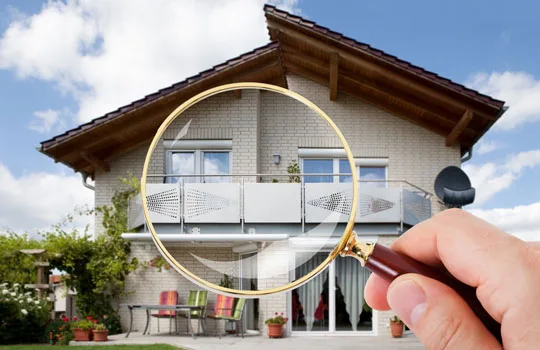A Comprehensive Guide: What to Look for in Certified Home Inspectors
Buying a home is likely one of the biggest financial investments you’ll make in your lifetime. Before signing on the dotted line, it’s essential to have a certified home inspector thoroughly examine the property. A home inspection conducted by a qualified professional can uncover issues that may affect your decision to purchase the home or impact negotiations on the sale price.
When hiring a certified home inspector, you want someone experienced, knowledgeable, and ethical. Here’s a comprehensive guide on what to look for when choosing a home inspector.
The Importance of Hiring a Certified Home Inspector
In most states, home inspectors are not required to hold any specific licenses or certifications. However, certification demonstrates that an inspector has received proper training and has extensive expertise in examining homes. Certified inspectors must pass rigorous exams and adhere to a code of ethics. They stay current through continuing education on the latest inspection methods, building codes, and safety standards.
The following are key benefits of using a certified home inspector:
- Peace of mind – A certified inspector has the skills and knowledge to thoroughly evaluate the condition of a home. Their inspection report will help you make an informed decision.
- Save money – An inspector can identify issues that may be costly to repair. This allows you to negotiate with the seller, walk away from a problem property, or budget for future repairs.
- Understand safety issues – Certified inspectors determine whether systems and components meet safety standards. This ensures you won’t unknowingly purchase a hazardous property.
- Unbiased professional opinion – An objective analysis of the property’s condition from an experienced third-party.
How to Find Certified Home Inspectors
There are a few ways to find certified home inspectors in your area:
- Get referrals – Ask your real estate agent, friends, or family members for recommendations. Referrals from past clients can help you gauge an inspector’s reputation.
- Contact professional organizations – Inspectors who belong to organizations like the American Society of Home Inspectors (ASHI) or the International Association of Certified Home Inspectors (InterNACHI) must meet certification standards. You can search for members on the organizations’ websites.
- Check online reviews – Sites like Google, Facebook, and Yelp offer reviews of home inspectors from past customers describing their experiences. Make sure to read both positive and negative reviews.
- Search online directories – HomeAdvisor and Angie’s List allow you to search for certified inspectors in your area along with customer ratings.
- Ask your real estate agent – Certified Home Inspectors Methuen agents often have inspectors they regularly work with and can recommend.
What to Look for in a Certified Home Inspector
When evaluating potential certified home inspectors, here are the top qualities and qualifications to look for:
Extensive Training and Certification
Choose an inspector with certifications from leading national or state organizations like the International Association of Certified Home Inspectors (InterNACHI), the American Society of Home Inspectors (ASHI), or The National Association of Home Inspectors (NAHI). These certifications require passing comprehensive exams and continuing education. Ask to see certifications.
Strong Knowledge of Building Systems and Codes
A certified professional home inspector will have expert-level knowledge of structural components, construction materials, electrical, plumbing, HVAC, and other home systems. They thoroughly understand building codes to identify any issues that don’t meet code.
Use of Technology and Tools
Certified inspectors use specialized diagnostic tools like moisture meters, outlet testers, infrared cameras, drone cameras, and more. These devices detect issues undetectable to the naked eye. Ask what tools they use during inspections.
Great Communication Skills
An inspector should be able to explain their process and findings in everyday terms. They should listen to your specific concerns about the home. Make sure they have strong reviews for communication skills.
Attention to Detail
A thorough inspector will check the home from the roof to the foundation, including areas like the attic, crawl spaces, and interior rooms. They should meticulously inspect every aspect of the property.
Strong Reports with Supporting Visuals
Ask to see sample reports from past inspections. Look for reports that are clearly organized, easy to understand, and contain supporting photos and videos of issues discovered.
No Conflicts of Interest
Choose an independently licensed inspector without any ties to real estate agents, mortgage lenders, or other professionals involved in your home purchase. Make sure their only interest is giving you an objective inspection.
What’s Included in a Home Inspection?
A standard pre-purchase home inspection conducted by a certified professional will cover the following areas:
- Roof – Shingles/tiles, flashing, gutters, visible attic sections, roof drainage
- Exterior – Siding, trim, paint, decks, patios, eaves, drainage, foundation
- Structure – Foundation, framing, floors, walls, ceilings, insulation, ventilation
- Electrical – Main panel, wiring, outlets, GFCIs, breakers, smoke/CO detectors
- Plumbing – Water lines, drain pipes, toilets, sinks, faucets, water heater, fuel lines
- HVAC – Furnace, heat pump, air conditioner, thermostat, vents, flues
- Appliances – Oven, stove, dishwasher, garbage disposal, microwave, washer/dryer
- Interior – Ceilings, walls, floors, windows, doors, railings, fireplace, vents
- Garage – Siding, roof, doors, windows, electric, floors, vehicle bays
- Pool/Spa – Liner, pumps, filtration, electrical, underwater lights, safety barriers
- Other – Ventilation, drainage, radon, pests, mold, asbestos, lead paint
The scope of inspection may differ slightly between inspectors. Be sure to ask what specific areas will be covered.
What Isn’t Covered in a Home Inspection?
There are limitations to what a traditional pre-purchase home inspection covers. Certified inspectors typically won’t:
- Test for lead, radon, mold, asbestos or pests – These may require separate specialty tests
- Evaluate low-voltage systems like security alarms or smart home devices
- Offer warranties or guarantees about future repairs
- Inspect chimney flues or underground pipes
- Move furniture, lift carpets, or remove wall panels
- Operate gas appliances that are shut down
- Inspect inaccessible areas like under floor insulation
- Evaluate cosmetic issues like paint, wallpaper, smudges, etc.
If you have concerns about any excluded aspects, communicate them ahead so the inspector understands your expectations or can recommend additional testing.
Attending the Home Inspection
It’s highly recommended that you attend the home inspection so that you can:
- Learn about the home’s systems, features, and construction
- Ask the inspector questions as they perform the inspection
- Hear concerns directly from the inspector and better understand the severity of issues
- Get real-time clarification on anything noted in the inspection report
- Point out areas of the home you are particularly concerned about
Attending the inspection will equip you to make better decisions about repairs, negotiating the sale, and budgeting for future maintenance costs. Just be aware that the inspection will take 2-3 hours or more, so make sure to set aside ample time.
What to Do After the Inspection
Once the inspection is complete, there are a few key next steps:
- Review report – Read the full inspection report closely. Make sure you understand any issues raised.
- Ask about unclear or concerning items – If you don’t understand something in the report, contact the inspector for clarification as soon as possible.
- Decide which repairs to request – Determine which inspection findings are necessary repairs versus deferrable maintenance.
- Discuss report with real estate agent – Your agent can advise if major issues warrant backing out of the purchase or negotiating repairs with the seller.
- Make repair requests – Formally submit your requested repairs to the seller in writing according to your contract terms.
- Maintain documentation – Keep a copy of the inspection report, repair requests, and all related correspondence.
Don’t hesitate to call the inspector with any lingering questions you have about their findings and recommendations. They want to ensure you have a complete understanding of the property’s condition.
Finding the Right Certified Home Inspector
Choosing the right certified home inspector for your upcoming purchase requires careful research and evaluation. Be sure to:
- Interview multiple inspectors before deciding
- Verify necessary certifications and licenses
- Check references from past clients
- Look for great reviews and communication skills
- Ask about their inspection process and reporting
An experienced, certified home inspector like Certified Home Inspectors Methuen can make your home purchase experience exponentially smoother. They provide objective insights you can trust to decide on a property with confidence. The cost of a professional inspection is minor compared to the expense and headaches of buying a deficient home.







